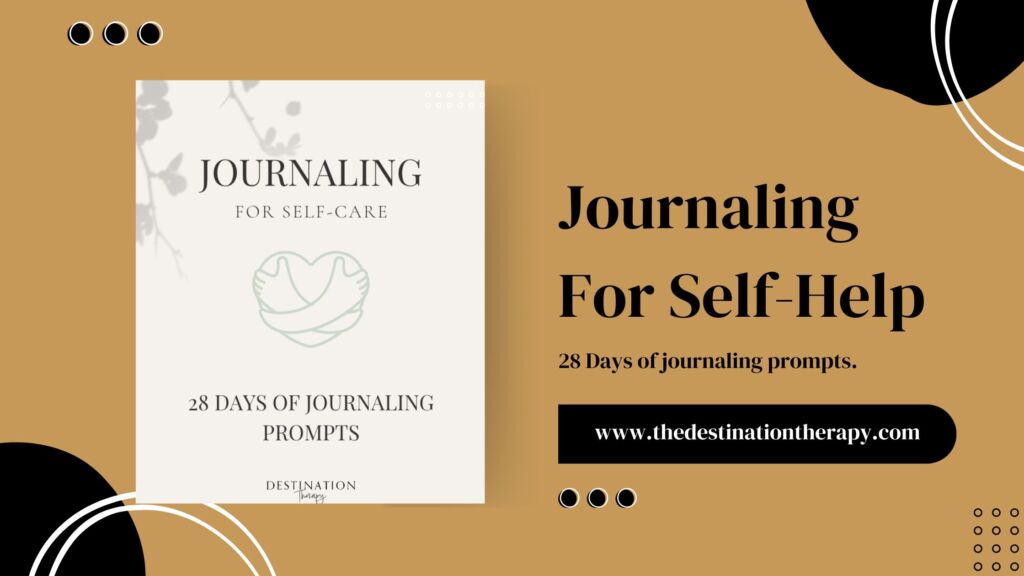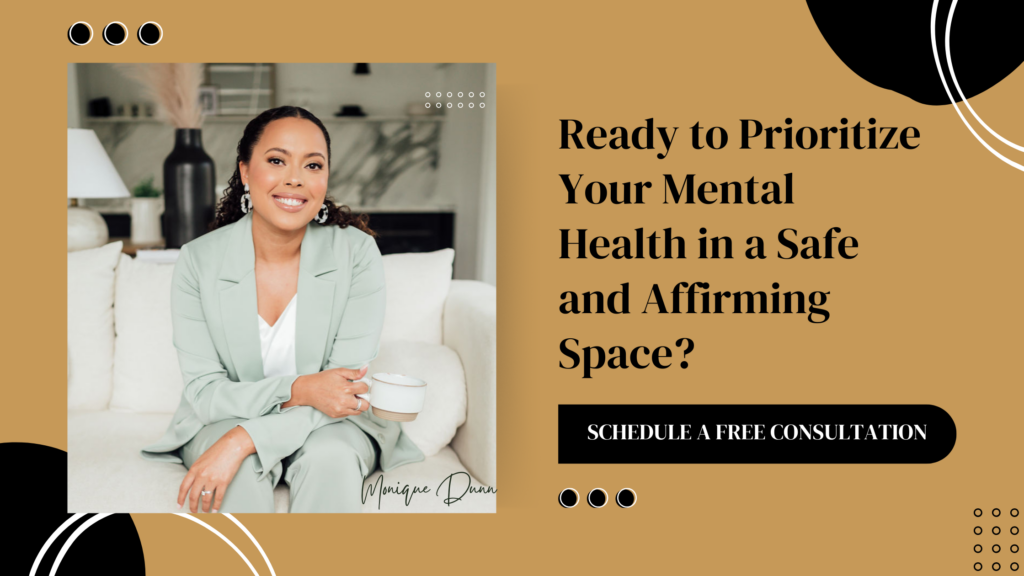The daily strain of navigating a world that judges or devalues you for who you are because of your race, gender, sexual orientation, or other identity can quietly chip away at your well-being. Over time, this kind of chronic stress can take a significant toll on your mental health. In this blog post, we’ll take a closer look at how discrimination and stigma contribute to depression, and why finding support from an anti-racist, gender-inclusive therapist can be an important step toward healing.
Table of Contents
Understanding Discrimination and Stigma
Discrimination happens when people are treated unfairly or unequally based on aspects of their identity, such as race, gender, age, sexual orientation, or disability. Sometimes this is built into the systems we live and work in through policies or practices that create barriers without always being obvious. At other times, it shows up in everyday interactions between individuals. No matter the form, discrimination can leave deep and lasting psychological wounds, often contributing to feelings of isolation, stress, and diminished self-worth.
Stigma plays a powerful role in this. It occurs when certain traits, behaviors, or identities are socially discredited or seen as less valuable. Stigma fuels discrimination by reinforcing harmful stereotypes and justifying exclusion. The two often feed into one another, creating a cycle that makes it harder for marginalized individuals to feel safe, seen, and supported.
As mental health professionals, it’s important to understand how these dynamics affect well-being. Discrimination and stigma are lived realities for many people. By deepening our awareness of discrimination and stigma, we can better support those who are impacted and advocate for environments that foster inclusion, respect, and healing.
The Psychological Impact of Discrimination
As mentioned, the psychological impact of discrimination runs deep and can affect many aspects of your emotional and mental well-being. When you face discrimination, it’s common for you to feel emotions like worthlessness, shame, and helplessness. These feelings chip away at your confidence and sense of self, often leaving you questioning your identity and purpose.
When discrimination is a regular part of your life, it can create a constant state of stress and anxiety. Living in environments where you must be alert for bias or unfair treatment is mentally draining. This can then lead to chronic stress, which doesn’t just affect the mind but the body as well. Over time, it can increase the risk of mental health struggles such as depression and anxiety.
Discrimination also has a way of pushing people away from the support systems they need. Fear of rejection or further mistreatment can cause marginalized individuals to withdraw socially, which can deepen feelings of loneliness and isolation. This withdrawal only intensifies emotional pain and can contribute to worsening mental health over time.
How Stigma Contributes to Mental Health Issues
Stigma also plays a major role in mental health challenges, especially among marginalized groups. When you face stigma, you often experience judgment, ridicule, and social exclusion, experiences that can take a heavy emotional toll. Over time, this external stigma can become internalized, leading to what we call self-stigmatization. In this process, you start to accept and believe the negative stereotypes and biases aimed at you.
This internalization can negatively affect your sense of self-worth and confidence. You may begin to feel they somehow deserve the discrimination or mistreatment they endure, which often results in feelings of guilt and shame. This painful inner conflict can trap you in a cycle where your mental health worsens, making it harder to escape the impacts of stigma and discrimination.
Similarly to discrimination, stigma also creates a significant barrier to seeking help. The fear of being labeled or judged can prevent individuals from reaching out for the care and support they need. Left to manage their struggles alone, symptoms of depression, anxiety, and other mental health conditions can intensify, further undermining their well-being.
That’s why addressing stigma is essential not only to promote mental health but to ensure that marginalized individuals feel safe and empowered to access the resources and support they deserve. Breaking down stigma is a critical step toward fostering healing, resilience, and inclusion.
The Link Between Discrimination and Depression
Research consistently shows a strong connection between discrimination and depression. Experiencing discrimination creates a chronic stress environment, which is a known risk factor for developing depression. When someone faces ongoing discriminatory behaviors or attitudes, their body responds with stress, releasing hormones like cortisol. Over time, elevated cortisol levels can negatively affect brain function, making it harder to think clearly and increasing vulnerability to depression.
Beyond the physical stress response, the emotions tied to discrimination, such as anger, frustration, and sadness, can build up and weigh heavily on a person’s mental health. Feeling devalued or marginalized often leads to a deep sense of hopelessness and despair, which are central features of depression. These feelings can become so overwhelming that it’s difficult to hold onto hope or envision a positive future.
Another important factor is social isolation, which frequently results from discrimination. As humans, we rely on social connections to feel supported and grounded. When discrimination pushes people away from their communities or relationships, loneliness and isolation can set in. This loss of connection not only deepens feelings of depression but also makes it harder to find the strength and resources needed to heal.
Vulnerable Populations Affected by Discrimination
Certain populations in our society carry a heavier burden when it comes to discrimination and stigma, making them especially vulnerable to related mental health challenges. Take racial and ethnic minorities, for example. Many face systemic barriers in education, employment, healthcare, and housing areas that are essential to well-being and stability.
Similarly, LGBTQ+ individuals often navigate a world where homophobia, transphobia, and rigid societal norms around gender and sexuality create real obstacles. The fear of rejection, harassment, or violence is a daily reality that increases anxiety and emotional strain. When coupled with a lack of acceptance from family or community, these experiences can deepen feelings of isolation and despair, heightening the risk for depression.
People with disabilities also face many challenges. Ableism, the discrimination and social prejudice against people with disabilities, often restricts access to opportunities and resources, leading to frustration and a sense of powerlessness. Society’s tendency to view disability through a lens of deficiency can add another layer of stigma, impacting self-esteem and emotional well-being.
Recognizing the specific ways discrimination and stigma affect different populations is key. It helps us approach mental health with greater empathy and tailor support to meet the needs of those who are often marginalized and overlooked.
Strategies for Combating Discrimination and Stigma
Addressing discrimination and stigma requires a collective effort, one that brings together individuals, communities, and institutions to build a more inclusive and compassionate society. One powerful way to start is through education and raising awareness. When people learn about the real and harmful impact of discrimination and stigma, it becomes easier to challenge the negative stereotypes that fuel them. Educational initiatives like public awareness campaigns, workshops, and training programs can open hearts and minds, fostering empathy and understanding that help reduce prejudice.
Advocacy and policy change also play a vital role in this work. Advocates can amplify the voices of marginalized communities, drawing attention to the challenges they face and pushing for changes in laws and policies that promote fairness and inclusion. This can mean strengthening anti-discrimination legislation, encouraging diversity initiatives, and making sure everyone has access to the resources and support they need to thrive.
Creating safe, supportive environments is equally important. Whether in workplaces, schools, or community spaces, adopting inclusive policies and practices sends a clear message: everyone belongs here. Training staff and community members to recognize and address discrimination and stigma helps cultivate spaces where people feel respected and valued. Most importantly, nurturing a culture of acceptance encourages individuals to seek the support they deserve, whether from friends, family, or mental health professionals, without fear of judgment or rejection.
Seeking Help: Therapy and Support Resources
Reaching out for support is an essential step in caring for your mental health, especially when grappling with the emotional toll of discrimination and stigma. Therapy offers a space to process these experiences, where you can feel heard, validated, and empowered. For those who have been marginalized, working with a therapist who understands the struggle with identity, oppression, and cultural context can make all the difference.
Therapists who practice through an anti-racist, gender-inclusive, or culturally affirming lens can support individuals navigating discrimination based on race, gender, sexual orientation, and other aspects of identity. These professionals bring awareness to the broader systemic issues their clients may be facing, and provide care that is both compassionate and informed. In this space, therapy becomes more than treatment…it becomes an act of resistance and healing!
Beyond one-on-one therapy, support groups and community organizations can offer connection and solidarity. Being in community with others who share similar lived experiences can ease the burden of isolation and provide a strong foundation of mutual understanding. Whether it’s through shared stories, peer support, or advocacy resources, these spaces remind individuals that they are not alone and that healing is possible.
Conclusion: Moving Towards Inclusivity and Mental Wellness
Addressing the emotional and psychological toll of discrimination and stigma is not just important, it’s necessary for building a more inclusive and mentally healthy society. When we take the time to understand how deeply these experiences impact mental health, especially in connection with conditions like depression, we begin to see just how vital it is to respond with intention, empathy, and action.
Creating a more inclusive world is not the responsibility of a few…it requires all of us. From the language we use, to the policies we advocate for, to the way we show up for one another, every action matters. By challenging stigma and discrimination in both subtle and systemic ways, we can build communities that prioritize mental wellness and truly honor the diverse identities within them.
Healing and inclusivity go hand in hand, and together, we can move toward a future where every person has the support they need to thrive.
We Are Here For You
Whether you’re battling anxiety, depression, perfectionism, or navigating relationship challenges, Destination Therapy empowers you to achieve the peace, ease, and fulfillment you deserve.
We offer convenient telehealth across Texas, Massachusetts, California, Florida, Utah, and New York.




